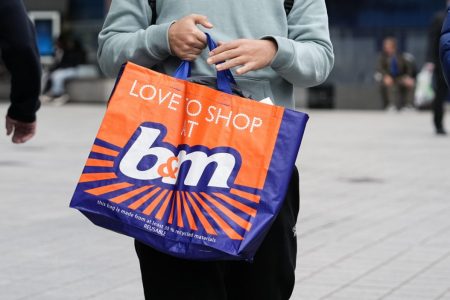A David and Goliath Battle in the Chocolate Industry: Choc on Choc Accuses M&S of Design Infringement
A small, artisanal chocolate business from Somerset, Choc on Choc, has accused retail giant Marks & Spencer (M&S) of plagiarizing the design of its bestselling Giant Custard Cream chocolate. The alleged infringement centers around M&S’s newly launched Outrageously Chocolatey Custard Cream Biscuity Egg, a product that has quickly become a viral sensation. Choc on Choc, founded by Flo Broughton, claims that the M&S product bears a striking resemblance to their own Giant Custard Cream chocolate, which they have been selling since 2018. This isn’t the first time Broughton has raised concerns about M&S potentially copying their designs, further fueling the controversy and raising questions about the ethics of design inspiration within the food industry.
The heart of the dispute lies in the visual similarity between the two products. Both are essentially oversized chocolate versions of the classic custard cream biscuit. While M&S argues that their product is an "evolution" of their existing Outrageously Chocolatey Custard Creams line, Choc on Choc and its loyal customer base contend that the resemblance to their Giant Custard Cream is too close to be coincidental. Social media has become the battleground for this dispute, with Choc on Choc customers expressing their outrage and accusing M&S of stealing the smaller company’s innovative idea. The online outcry has put pressure on M&S to address the allegations and justify the design of their new product.
The timing of this controversy is particularly challenging for Choc on Choc, as the chocolate industry has faced significant economic headwinds in recent times. Broughton points to a 90% increase in chocolate prices, highlighting the difficult operating environment for smaller businesses. The alleged design theft, she argues, exacerbates these challenges by potentially diverting customers and sales away from her company to a much larger competitor with significantly more market reach. This underscores a broader concern about the power dynamics between large corporations and small businesses, where the latter often lack the resources to effectively compete or protect their intellectual property.
Adding another layer of complexity to this situation is a previous incident between the two companies. In 2022, Broughton accused M&S of copying their chocolate matchstick design. Following public outcry on social media, M&S agreed to stock Choc on Choc’s matchsticks in their stores and discussed future collaborations. This prior encounter raises questions about M&S’s internal processes for product development and their awareness of existing designs from smaller businesses. The recurring nature of these allegations casts doubt on whether the current custard cream controversy is an isolated incident or indicative of a larger pattern of behavior.
The M&S custard cream egg controversy also draws parallels to the highly publicized legal battle between M&S and Aldi over the latter’s Cuthbert the Caterpillar cake, which M&S claimed was a copy of their Colin the Caterpillar cake. The irony of M&S now facing similar accusations of design infringement is not lost on Choc on Choc and its supporters. Broughton has pointedly questioned whether M&S would pursue legal action against another retailer if they were to copy the custard cream egg design, highlighting the perceived double standard in how intellectual property rights are enforced. This raises broader questions about the legal and ethical boundaries of design inspiration versus outright copying within the food industry.
The ongoing dispute between Choc on Choc and M&S serves as a microcosm of the challenges faced by small businesses in a competitive marketplace dominated by large corporations. It underscores the importance of protecting intellectual property and the difficulties smaller businesses face in doing so. Moreover, it raises ethical questions about the responsibility of large companies to respect the innovative work of smaller businesses and to engage in fair competition. The outcome of this controversy, and the public response to it, could have significant implications for the future of the food industry and the relationship between large retailers and artisanal producers.











